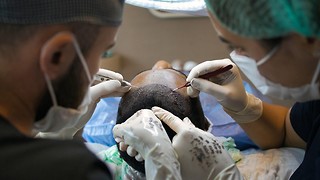Becoming sober: my road to recovery
An anonymous student discusses how Cambridge’s binge drinking culture enabled their alcoholism

Content note: this article contains detailed discussion of alcoholism. Resources for support and guidance can be found at the bottom of this article.
I ushered in my second year collapsed on the floor of a public bathroom having vanished from matriculation during the dean’s speech to vomit. I ended the year sitting no less than two of my six exams drunk.
Binge drinking, so entrenched in British culture, walks a tightrope between an amusing anecdote and a cautionary tale. During my time here, the prevalence of alcohol abuse in student life and society at large made it incredibly difficult for me to access support, both from my friends and the university.
Of all hobbies, drinking is among the more expensive. Any alcoholic worth their salt can point you to the cheapest drink with the highest alcohol content, protest as they might that they haven’t done maths since GCSE.
With alcohol being as expensive as it is, those with alcohol dependencies learn to be opportunists: you take it where you can get it. Unfortunately, in Cambridge, there are a lot of places to get it.
Be it squashes, swaps, mixers, may balls, an eccentric academic known to offer red wine during supervisions, the stranger sitting next to you at a formal who foolishly leaves their bottle unattended, or — if you’re desperate enough — CUCA’s Port and Policy; the well of free wine never seems to run dry in Cambridge.
Even if you manage to resist the free drink (and you’d be a stronger person than I for it), you may well fall victim to Cambridge’s pervading culture of ‘working hard and playing hard,’ as the saying goes. So endemic is this to university student life that there are well-established traditions dedicated to ‘letting off steam’ (in other words, binge drinking): C-Sunday, Suicide Sunday, and so on.
If I ever hesitated to order a drink (a rare occurrence), I always had a chorus of well-intentioned friends ready to parrot cheesy lines from Parks and Recreation at me, urging me to ‘treat myself.' Not only was there ample opportunity to drink, I felt encouraged to do so, absolving me of any guilt or reservations.
Among the many tell-tale signs of alcoholism, one of the more prominent is secrecy: hiding bottles, being evasive or even hostile to questioning. This was rarely an issue for me. The normalcy of binge drinking at Cambridge made it disturbingly easy to hide in plain sight.
The normalcy of binge drinking at Cambridge made it disturbingly easy to hide in plain sight
I have a darkened patch of skin on my lower arm — the result of a drunken misadventure making tea in which I poured a just-boiled kettle over myself. Often at parties, the conversation would turn to anecdotes of injuries that were funny retrospectively, and I would show my scar; it was my trump card.
On one occasion after showing it, a girl across the room jumped to her feet and excitedly revealed a similar scar: the result of drunkenly attempting to handle hair straighteners, she said. Another boy, on a different occasion, offhandedly described spending a night in A&E and getting his stomach pumped.
This was a depressingly common occurrence. I would recount a drunken anecdote, only to be met with another which was equally worrying or worse.
I assumed my behaviour was normal or, at the very least, no more a cause for concern than anyone else’s. The widespread nature of alcohol abuse both in Cambridge and across the U.K. makes it incredibly difficult to distinguish between the accepted cultural norm of binge-drinking and dependencies that are linked to mental health conditions.
In my second year, I was an anthropomorphic bundle of anxiety symptoms who had recently gained sentience — only, not enough for me to behave like an actual human being. Sober, I struggled to attend classes, socialise, and eventually to function. Drunk, I could do all of those things and, what’s more, I wanted to.
I began my second year with barely enough self-restraint to stop myself from going to supervisions still-tipsy
At least twice a week, I would swear off alcohol and, at least three times a week, I would wake up face-down, lying on my bathroom floor. My alcohol dependency took root once I had decided that routinely vomiting for hours a day was more tolerable than sobriety.
So, I began my second year with barely enough self-restraint to stop myself from going to supervisions still-tipsy, and ended it shrugging off the shame of attending yet another exam drunk. I was appalled, but not enough to spark any meaningful change. My inhibitions eroded by cheap alcohol, I went about my life in a haze of mortifying apathy.
There was no one event sobering enough to scare me into recovery. I had no incentive to stop, or even to slow down. The only person affected by my drinking was me and, frankly, I couldn’t have cared less about myself.
The change began with those around me: a friend expressing concern, a family member urging me to see my GP, an older student confiding that they too had a troubled relationship with alcohol. Although I am still not yet completely sober, my life is better now that I no longer have to incorporate hangovers into my daily routine.
With exceedingly high levels of stress and mental illness so endemic to student life, it is easy to rationalise the habit of indulging your woes with alcohol — friends and family may even encourage you to do so.
To make matters worse, the normalcy of alcohol abuse in the U.K. means it is difficult for you to tell when your drinking habits have gone from the typical behaviour of a normal young adult to a genuine cause for concern.
After countless injuries and lost time and relationships, I can assure any student curious about the healing effects of alcohol that there are none. Using alcohol as a crutch for stress or mental illness is effectively like giving yourself a second injury to distract from the pain of the first: once sober, there is twice the burden to bear.
- If you are affected by any of the issues raised in this article, the following provide support and resources: Drinkline, the national alcohol helpline — call 0300 123 1110 (9am to 8pm weekdays, 11am to 4pm weekends); Drinkchat — visit drinkaware.co.uk/chat-with-an-advisor (9am to 2pm weekdays); Cambridgeshire Child and Adolescent Substance Use Service (CASUS) — call 01223 214614 (9am to 5pm weekdays).
 Features / Meet the Cambridge students whose names live up to their degree9 September 2025
Features / Meet the Cambridge students whose names live up to their degree9 September 2025 News / Student group condemns Biomedical Campus for ‘endorsing pseudoscience’10 September 2025
News / Student group condemns Biomedical Campus for ‘endorsing pseudoscience’10 September 2025 News / Tompkins Table 2025: Trinity widens gap on Christ’s19 August 2025
News / Tompkins Table 2025: Trinity widens gap on Christ’s19 August 2025 News / New left-wing student society claims Corbyn support11 September 2025
News / New left-wing student society claims Corbyn support11 September 2025 Science / Who gets to stay cool in Cambridge?7 September 2025
Science / Who gets to stay cool in Cambridge?7 September 2025









